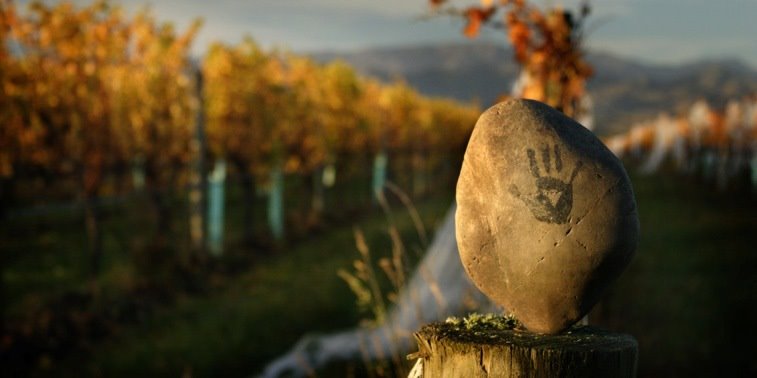Tea Anyone?
 The use of compost tea here at Seresin Estate is an important part of our vineyard management practices. A brew like none other you’ve had, we make it by adding good quality compost, straw, molasses, seaweed and humate to a large volume of water. This ‘brews’ and is aerated for 24 hours (pictured here). The process helps to release soluble nutrients and beneficial micro-organisms (bacteria, fungi, nematodes, protozoa) into the liquid solution. The liquid, packed with all this goodness, is then sprayed onto the vines, olives and paddocks. The benefits are many, including improved plant nutrition, soil health and disease prevention. This year we have been using more compost tea to improve the organism diversity and competition on the leaf and berry surfaces, while reducing our use of sulphur for powdery mildew. We believe we’ve seen less dis-ease and thicker-skinned fruit where we’ve taken this approach.
The use of compost tea here at Seresin Estate is an important part of our vineyard management practices. A brew like none other you’ve had, we make it by adding good quality compost, straw, molasses, seaweed and humate to a large volume of water. This ‘brews’ and is aerated for 24 hours (pictured here). The process helps to release soluble nutrients and beneficial micro-organisms (bacteria, fungi, nematodes, protozoa) into the liquid solution. The liquid, packed with all this goodness, is then sprayed onto the vines, olives and paddocks. The benefits are many, including improved plant nutrition, soil health and disease prevention. This year we have been using more compost tea to improve the organism diversity and competition on the leaf and berry surfaces, while reducing our use of sulphur for powdery mildew. We believe we’ve seen less dis-ease and thicker-skinned fruit where we’ve taken this approach.
Improvements in the works…. The good people at the Soil Foodweb have a wealth of knowledge and experience on compost teas. Seeking to make sure we are brewing the best tea we can, Sean  Phillips and Wendy Sukeena from our vineyard team recently visited with Cherryle Prew from the Soil Foodweb Institute of New Zealand. There they learned how to identify micro-organisms in the compost tea which will enable us to regularly monitor our brews and ensure we have the balance correct for a good tea. We also learned ways to improve our compost tea in order to get the most benefit from it. Pictured here is a piece of beneficial fungi.
Phillips and Wendy Sukeena from our vineyard team recently visited with Cherryle Prew from the Soil Foodweb Institute of New Zealand. There they learned how to identify micro-organisms in the compost tea which will enable us to regularly monitor our brews and ensure we have the balance correct for a good tea. We also learned ways to improve our compost tea in order to get the most benefit from it. Pictured here is a piece of beneficial fungi.
Photos provided courtesy of the Soil Foodweb Institute NZ Ltd









.jpg)
No comments:
Post a Comment